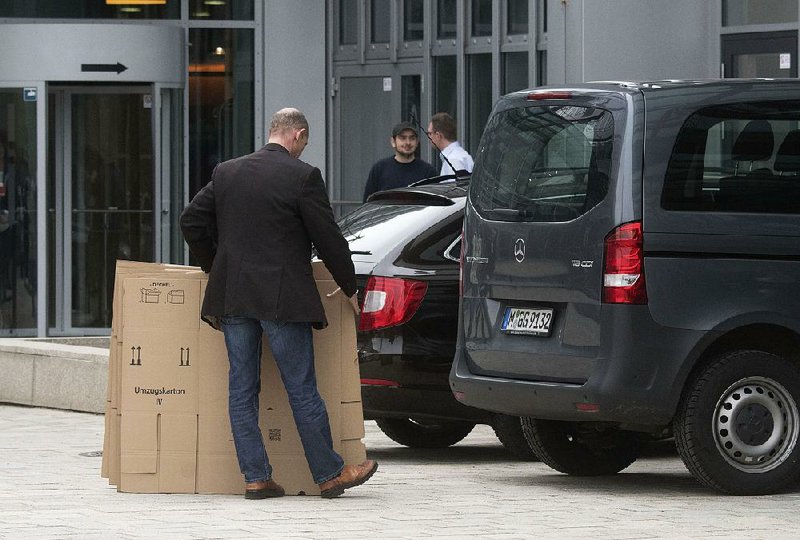FRANKFURT, Germany -- A criminal investigation of Volkswagen's diesel fraud escalated on Wednesday after authorities in Germany searched offices of the automaker's Audi luxury car unit, threatening a crucial source of badly needed profit.
The new Audi investigation by prosecutors in Munich, along with a separate criminal inquiry into Volkswagen in Braunschweig, is keeping the carmaker on the defensive as it tries to move past the emissions-cheating scandal.
Volkswagen has agreed to pay $22 billion in penalties and settlements in the United States and pleaded guilty to its vast emissions deception, which involved a variety of Volkswagen, Audi and Porsche-branded vehicles. Six Volkswagen executives face criminal charges in the United States, and the company is grappling with further legal action in Europe, where dozens of senior staff members -- including its former chief executive -- are being investigated.
In Europe, authorities are pursuing different threads from the same deception.
Prosecutors in Munich said the raids were part of a criminal investigation of Audi's behavior in the United States, where its parent company has admitted installing software in diesel engines to deceive regulators about how much the cars polluted.
The Munich investigation hits directly at a major profit center.
Audi produces a significant share of Volkswagen's profits. Luxury models such as Audi's A8 luxury sedan or its Q7 SUV accounted for about 15 percent of the vehicles sold by Volkswagen last year, but produced a third of its $15.5 billion operating profit.
The raids Wednesday took place at Audi's offices in the Bavarian city of Ingolstadt and other places around Germany, including seven residences. They came at an especially embarrassing time for company executives, who were holding Audi's annual news conference Wednesday and had to endure persistent questioning about the raids.
Rupert Stadler, the Audi chief executive who is also a member of Volkswagen's management board, told reporters that as far as he knew, his home had not been searched. Stadler said he did not observe any police officers when he left for the office early Wednesday and that "my wife hasn't called me."
Munich prosecutors did not identify any suspects in the investigation, saying the raids were designed to help determine who was responsible for wrongdoing in the United States. Investigators in Braunschweig are also looking at criminal behavior as well as securities violations by Volkswagen. Audi and Volkswagen are the subject of separate inquiries because their headquarters fall in different German jurisdictions.
Stadler, who deflected further questions about the searches and the alleged fraud, is under increasing pressure. Unlike Martin Winterkorn, the Volkswagen chief executive who resigned after Volkswagen's diesel fraud became public in September 2015, Stadler has continued to lead Audi even though the unit has admitted wrongdoing in the diesel scandal.
In addition to admitting that its Volkswagen-brand vehicles illegally evaded U.S. emissions requirements, the company has said that Audi cars sold in the United States had at least three devices that managed the vehicles' pollution control systems but were not disclosed to regulators as required.
The Audis were designed to use a urea solution that neutralized harmful nitrogen oxide emissions. The illegal software would ensure that the system worked as advertised in lab testing but would ration doses of the urea solution while vehicles were out on the road. Audi wanted to minimize consumption of the solution, known as AdBlue, because it feared that the inconvenience and expense of refilling the holding tank would turn off buyers.
Lawsuits filed by attorneys general in states including New York claim that the use of so-called defeat devices to pass emissions tests had, in fact, originated at Audi and was copied by Volkswagen beginning in 2006.
On top of what Volkswagen has agreed to pay in fines and settlements in the United States, Audi will pay $1.2 billion to settle a consumer fraud lawsuit by the Federal Trade Commission involving about 80,000 Audi and Porsche vehicles with diesel motors.
Volkswagen has continued to insist that no members of its management board were aware of the emissions fraud, which lasted a decade and, according to the company's plea agreement in the United States, included engineers, quality-control experts, high-ranking managers and in-house lawyers.
Business on 03/16/2017
